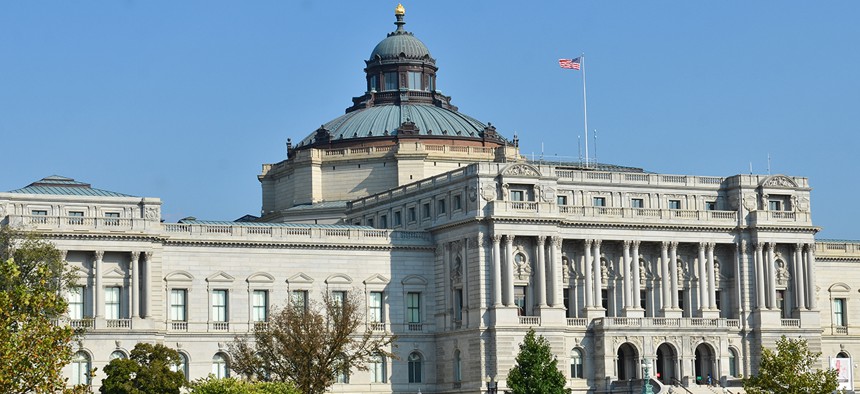
The U.S. Copyright Office has been part of the Library of Congress, seen above, since 1897. Orhan Cam/Shutterstock.com
Why the U.S. Copyright Office Wants to Run Away From Home
The copyright director says her agency has outgrown its place as a subsidiary of the the Library of Congress, but Darrell Issa isn’t convinced.
A federal office that has taken on the role of digital custodian and is now in charge of such 21st-century regulatory activities as approving mobile-phone jailbreaking and setting royalty rates for Internet radio says it needs out of its 19th-century home.
The U.S. Copyright Office has been part of the Library of Congress since 1897, and the office's director, Maria Pallante, told a congressional panel Wednesday it's time for a change, saying her office's hands are often tied as a part of the Library of Congress.
"The office's current organizational structure is under strain because the copyright system has evolved and because digital advancements have changed the expectations of the public," Pallante said in a written statement. She asked the committee to codify the Copyright Office's independence.
In many ways, an independent Copyright Office would operate much like it does now, Pallante said. Although part of a legislative-branch entity, the Justice Department has recognized that the Copyright Office behaves like, and should be treated like, an executive-branch agency.
In its current form, the office's uncertain legal status and subordination to the Library of Congress can create problems. A Government Accountability Office report last month found that the library's IT services, which the Copyright Office relies on, are stuck in the past and are detrimental to its work. And Pallante says it's difficult for her to hire the staff her office needs because of the conflicts between the mission—and the budget—of the Copyright Office and that of the Library of Congress.
Pallante's plea for an independent Copyright Office, which she put forward earlier in a Marchletter addressed to the Judiciary Committee, was met with near-consensus from the assembled lawmakers.
"It's hard to see how the Copyright Office can rise to the many challenges of the 21st-century work that you do without dramatically more independence and dramatically more flexibility," said Democratic Rep. Ted Deutch.
But not everyone on the committee was sold.
"You already are a fairly independent agency, in spite of your lack of certainty in certain areas," said Republican Rep. Darrell Issa, who added that he believed the main problem is that the Copyright Office spends its time and energy commissioning studies rather than proposing solutions.
Issa said the focus should be on fixing the problems Pallante identified in her office—ineffective technologies and staffing issues—without overhauling the Copyright Office entirely. "I cannot presume today to do anything other than work under the current structure, albeit independent of the librarian's needs," he said.
Despite Issa's opposition, the push to spin the Copyright Office out of the Library of Congress could gain more traction than other copyright issues in front of Congress, which have been long caught in a stalemate. Attempts to change music-royalty rules and update copyright law—both of which came up at the wide-ranging Wednesday hearing—have been met with limited success.
"This is one thing where there's broad agreement and I hope that we move forward on," said Deutch.
(Image via Orhan Cam/Shutterstock.com)







